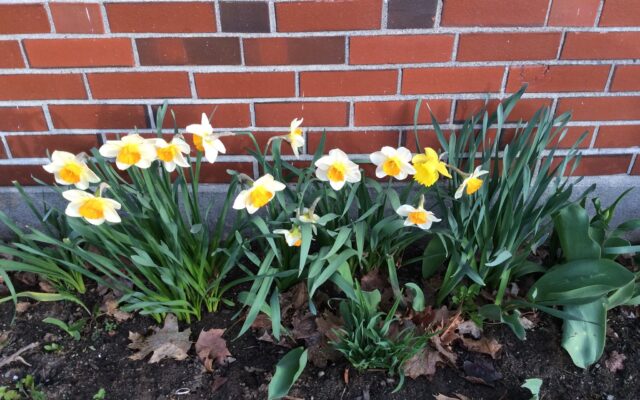
How to safely shop at plant sales in Maine this season
By Elizabeth Walztoni
Plant sale and swap season is in full swing, and this year there are some new considerations to keep in mind while shopping.
Limitations on plant species that can be sold in Maine have increased since last season, so knowing types of plants, pests, and disease to look out for can help you have a more productive garden.
In January, a state law went into effect adding 30 plants to the “do not sell” list, almost doubling the number of species illegal to sell here.
These species are controlled because they are classified as invasive by the Maine Department of Agriculture, Conservation and Forestry’s horticulture program.
Common plants on the list include the Norway maple, tree of heaven, European alder, ground ivy, sea buckthorn, two bamboo varieties and a number of honeysuckles.
In addition to plants, the state urges caution with pests that spread through mulch, soil amendments and seedlings. There are no widespread management techniques for common pests like jumping worms and winter moths yet, so looking for signs as you shop is one preventative measure.
If you do find jumping worms in your soil (one sign is the coffee ground-like casings they leave behind), you can collect them in a bucket of soapy water or a plastic bag. You may be able to kill jumping worm cocoons in soil or compost if it is heat treated to 104 degrees Fahrenheit for three days. Solarizing is one way to do this.
If you do find the worms, you can report them to the state.
European fire ants, another invasive pest, can be bait killed later in the season if you do take them home.
Non-invasive but common pests like the cabbageworm and squash beetle start laying their eggs on leaves around this time of year. Checking seedling leaves for eggs and knowing how to identify those eggs can make your growing season go more smoothly.
Invasive, garden-damaging plants like the black swallowwort and mile-a-minute weed have been found in some parts of the state in recent years, some moving through nursery plant sales, and are worth checking for.
If you are selling or swapping plants from your own garden, washing all the soil from the roots and repotting in sterilized pots with new soil reduces the risk of transporting pests.
Whether for sales or your own use, you can disinfect your pots and tools by scrubbing them with dish soap and water, followed by a soak in a mix of one part bleach, nine parts water or simply standard rubbing alcohol. This can also minimize the spread of disease among your own plants.
You can also rinse roots before you transplant seedlings bought from someone else. If you collect the wash water in a bucket, let it evaporate, and then rinse it out with boiling water, that may kill remaining pest cocoons.